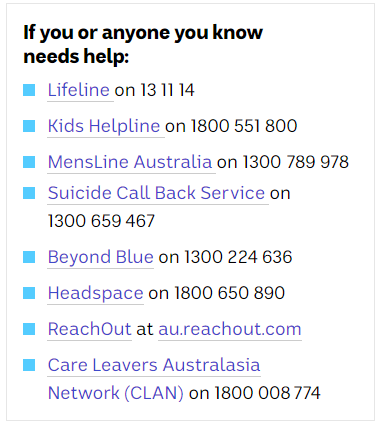


Psychology is the scientific study of how people behave, think and feel. It aims to help people and communities lead healthier, happier and more meaningful lives.
Generally speaking, a psychologist focuses on thoughts and beliefs, behaviours and actions, and the emotions or feelings related to a person’s specific problem. They typically assist people with concerns such as depression, panic attacks, grief and loss, adjustment to difficult circumstances such as divorce, excessive worry, child behaviour problems, adjustment to physical problems or injury, relationship problems, reactions to trauma such as car accidents, robberies, and stress-related problems.

Practicing psychologists have the professional training and clinical skills to help people learn to cope more effectively with life issues and mental health problems. They use a variety of techniques based on the best available research as well as considering someone's unique values, characteristics, goals and circumstances.
Treatment begins with an assessment phase, where the psychologist spends time understanding the problems and issues. Following this is a treatment phase, where specific exercises, techniques and strategies are developed and practiced. The core aim of their approach is to build a supportive, empathic and respectful relationship, focused on active listening and understanding and where needed, best-practice relevant advice.

We’ve taken particular care to build a compassionate and experienced team of clinical and general psychologists, who are skilled in treating adults, teenagers and children. They are all registered providers with both Medicare and private health funds.
Our psychologists are trained to use Cognitive Behaviour Therapy, as well as a range of other evidence-based psychological approaches, including Motivational Interviewing, Mindfulness, Solution-Focused Therapy, Interpersonal Therapy, Acceptance and Commitment Therapy, and Eye Movement Desensitization and Reprocessing (EMDR).
Our team of psychologists understand that:
All our psychologists are members of the Australian Psychological Society and are registered with the Psychologist’s Board of Australia.
as well as services to treat...
Our Psychologists prefer to see clients for face-to-face appointments, however if you have cold, flu or gastro symptoms, or have recently travelled to a Covid hotspot area, then telehealth appointments can be a good way to continue to access the appointment that you need. If you would prefer telehealth appointments for your care, please discuss this with our reception team to co-ordinate whether this is most appropriate between you and your Psychologist.
As long as Sharita can recall she has wanted to help people going through difficult times to find comfort and strength to carry on. Sharita believes that as a psychologist, she can assist her clients in their journey of recovery and personal growth by talking about their presenting symptoms, as well as underlying issues, as this helps to formulate a good treatment plan. She uses a strengths-based and person-centred approach to empower her clients to make informed decisions about different aspects of their lives.
Greg began with a curiosity about people, that became a fascination with human functioning and behaviour. He has found solutions to many chronic health conditions, and enjoys journeying towards better life outcomes with those who have the courage to do so. He finds offering hope to the hopeless very rewarding.
Karyn is an experienced psychologist who embarked on a fulfilling journey into psychology after a decade in the sports industry. Driven by a profound desire to align her professional path with her core values, Karyn is dedicated to supporting individuals on their unique journey.
Maree has extensive experience helping people with anxiety, depression, trauma, grief and loss, adjustment to illness, and physical pain. She has worked in forensic, rehabilitation and community mental health settings with adults of all ages. Her master’s thesis explored people’s personal growth experiences with cancer and examined the resilience of highly sensitive people.
Samantha has many years experience working with children, adolescents, young adults and their families. She believes strongly in early intervention and working collaboratively to strengthen emotional health, interpersonal relationships and wellbeing.

Psychologists who work in the area of psychology typically assist people with concerns such as depression, panic attacks, grief and loss, adjustment to difficult circumstances such as divorce, excessive worry, child behaviour problems, adjustment to physical problems such as pain, disability, or terminal illness, relationship problems, reactions to trauma such as car accidents or robberies, and stress related problems.
During your first appointment, you will be encouraged to explain your concerns. With respect to appointments for children, it is useful to attend the first appointment without your son or daughter so that you can speak freely about your concerns.
To gain further understanding of your difficulties, you will be asked relevant questions and at times be asked to complete questionnaires. The aim of your treatment will be to improve your understanding of the problem and will focus on how you can develop ways of managing and solving your difficulties.

We have several experienced therapists on our psychology team who work with children, addressing issues including parenting concerns, child behaviour difficulties, child anxiety, depression, self-esteem and confidence, grief, adjustment to divorce, bed-wetting, making friends, and bullying.
For young children, we recommend booking your initial appointment without your son or daughter so that you can speak freely and thoroughly about your concerns. Please note that Medicare rebates cannot be claimed if an appointment is not personally attended by the person named on the referral.
Treatment for children may require joint sessions with your child, sessions alone with parents and/or sessions alone with your child depending on their age and concerns. The best approach will be discussed with you along the way.

To make an appointment, no referral is necessary unless you intend to claim a Medicare rebate. Please call reception to make a booking or to request an information brochure about psychology at Tyack Health.
If you would like to be placed on our waiting list for an earlier appointment or for specific appointment times please request this at reception. Contact reception for further information.
Rebates
Most private health funds refund part of the cost of the consultation under ‘extras’ cover.
Medicare rebates are available if your doctor has referred you through the Medicare scheme.
Medicare Rebates 
Your doctor, psychiatrist or paediatrician may determine that you or your child meet criteria for referral through the Medicare scheme. It is possible to claim Medicare rebates for individual and group psychology sessions with a specific referral.
If you are eligible for a Mental Health Treatment Plan you can receive a Medicare Rebate for up to 10 Psychology or 12 GP Psychotherapy sessions per calendar year. Your initial referral provides a Medicare rebate for 6 appointments. If required, your psychologist will then suggest you see your referring practitioner for a review or re-referral for a further 4 sessions.
For further information or to download the Medicare 'Information for Clients Fact Sheet', visit the Australian Psychological Society website at www.psychology.org.au/medicare/
Cancellation Policy
We understand that life is unpredictable and you may not always be able to make your scheduled appointment. If you can’t make an appointment we respectfully request at least 48 hours notice to cancel or arrange for another time.
Missed appointments and appointments cancelled without 48 hours notice may be charged the full consultation fee.
Hours
Monday to Friday 8.00am - 5.00pm
Fees
Clinical Psychology Consultation (50-60 minutes) $265 Medicare Rebate $145.25
General Psychology Consultation (50-60 minutes) $235 Medicare Rebate $98.95
We request a $70 deposit to secure your initial appointment for new patients. This amount will be deducted from your initial appointment fee, however, it is non-refundable should the appointment be cancelled within 48 hours of the scheduled time.
* Please note: Pension rates may be available upon request. NDIS prices are in line with the NDIS price guide. Please check with Reception.
You will be required to pay for your appointment at the time of your consultation unless we have received approval for a third party to cover your consultation costs.
Medicare and private health fund rebates are available with our Clinical and General Psychologists. If you are claiming private health fund rebates, HICAPS is available for your convenience. If you intend to claim a Medicare rebate, please ensure you have the correct referral paperwork from your doctor.
Cancellation Policy
We understand that life is unpredictable and you may not always be able to make your scheduled appointment. If you can’t make an appointment we respectfully request at least 48 hours notice to cancel or arrange for another time.
Missed appointments and appointments cancelled without 48 hours notice may be charged the full consultation fee.
Contact our Reception team on (07) 3249 5333 for further information.
Psychologists are bound by the legal requirements of the National Privacy Principles from the Privacy Amendment Act 2000 and follow strict guidelines for professional conduct that include confidentiality.
At your first appointment, a file containing personal contact details, referral information and sessions notes will be set up. These files are kept in a secure filing cabinet accessed only by our psychology team. Occasionally, administration staff may need to access files and enter referral information into the computer system for billing purposes. There will be no information relating to any aspect of your presenting problem, assessment or treatment stored on our computerised billing system.
Letters or reports written by your therapist on our computer system are stored in a secure, password protected area with access limited to our psychology team, and on rare occasion, our information technology staff. If privacy is a concern, this can be discussed with your Psychologist or the Centre Manager.
At any time, you may ask to see your file. Information in your file will remain confidential within the bounds of legal requirements. If a file is subpoenaed by court, you give your Psychologist permission to disclose the contents of your file, or if the Psychologist becomes aware of information that would place you or another person at risk, the contents of your file may be shared with appropriate people.
Do I need a referral?
A referral is not necessary to book an appointment unless you are intending to claim a rebate from Medicare.
How long is an appointment?
A standard appointment duration is between 50-60 minutes.
Can I claim a Medicare rebate?
Some appointments attract a Medicare rebate for up to 20 appointments per year. This requires specific assessment and referral from your regular General Practitioner, Psychiatrist or Paediatrician in order for them to determine the best care for you. If you are interested in discussing this further, please speak to your doctor by booking a ‘long’ consultation with them to allow time to discuss your concerns and to complete referral paperwork.
If you require information regarding Medicare rebate amounts, please see Medicare Referrals section.
What is the difference between a Clinical Psychologist and a General Psychologist?
General Psychologists have completed four years of training majoring in psychology. In addition, they have completed two years practicing as a psychologist under supervision and may be in the process of completing higher qualifications.
Clinical Psychology specialists have completed four years training similar to general psychologists and in addition, have completed masters or doctorate level training as well as the required practice under supervision.
What about registration?
Our psychologists are fully registered with the Psychology Board of Australia and members of the Australian Psychological Society.
Can I claim from a private health fund?
Most private health funds refund part of the cost of consultations under ‘extras’ cover. A referral is not necessary to claim a private health fund rebate. We suggest you contact your health fund for information regarding your entitlements.
What about privacy and confidentiality?
Psychologists are bound by the legal requirements of the National Privacy Principles from the Privacy Amendment Act 2000 and follow strict guidelines for professional conduct that include confidentiality. A file will be set up for you at your first appointment and will include personal contact details and session notes. These will be kept in a secure filing cabinet. Occasionally, administration staff may need to access files. Information in your file will remain confidential within the bounds of legal requirements. Therefore, if the file is subpoenaed by court, you give your psychologist permission to disclose the contents of your file, or if the psychologist becomes aware of information that would place you or another person at risk, the contents of your file may be shared with appropriate people. Please speak to us if you have any questions or concerns regarding confidentiality.
How do I go about arranging an appointment for my child?
It is recommended that you book your initial appointment without your son or daughter to enable you to speak freely about your concerns. It can then be determined whether a follow-up appointment is necessary with your son or daughter.
Please note, rebates for appointments can only be claimed for individuals who are present on the day and who have an accurate referral in their name.
What type of therapy will I receive?
Our psychologists are very experienced in the use of Supportive Psychotherapy and Cognitive Behaviour Therapy. In addition, we also use a variety of other therapeutic approaches where appropriate including Interpersonal, Mindfulness, Solution-Focused, Schema Focused, Acceptance and Commitment and EMDR Therapy styles.



DV Connect - Phone 1800 811 811 - 24 Hour Domestic Violence Helpline - dvconnect.org
1800RESPECT - Phone 1800 737 732 - National Domestic Family and Sexual Violence Counselling Service - 1800respect.org.au
Relationships Australia - Phone 1300 364 277 - Relationship Support Services for Individuals, Families and Communities - relationships.org.au
Brisbane Domestic Violence Service (BDVS 24hr) - Phone 3217 2544
DV Connect Men's Line - Phone 1800 600 636 - dvconnect.org/mensline
Victim Assist Queensland - Phone 1300 546 587
Gambling Helpline - Phone 1800 858 858 - gamblinghelpline.org.au
The Happiness Trap Pocketbook
This simplified, cartoon-based version of the original book, is now out in all good bookstores in Australia and New Zealand, as well as on Kindle. The main aim of the book is to make The Happiness Trap appealing and accessible and easy-to-read: a) for people who are not keen readers, b) for teenagers, and c) for folks who are so stressed, anxious or depressed that reading is really hard work. The secondary aim is to provide a quick and easy refresher course for anyone who’s already read the original. Check out these pages to get a sense of it: The Happiness Trap Pocketbook - Sample pages
You can get it in bookstores for $20, and on Kindle for $7.69.
You can also get it through The ACT Mindfully website for only $27.50, including post and packing. Go to:
http://www.actmindfully.com.au/bookshop_detail.asp?id=1026&catid=90
MyCompass - Black Dog Institute
MyCompass is an interactive self-help service that aims to promote resilience and well being for all Australians. Track your moods at: www.mycompass.org.au
Depression, Anxiety and Post-Natal Depression
For more information from the National Depression Initiative on depression, anxiety and post-natal depression go to www.beyondblue.org.au
For information on depression and bipolar disorder check out
www.blackdoginstitute.org.au
For information on youth depression and how to help a friend, try
www.youthbeyondblue.com
Self Help
For on-line self help cognitive behaviour therapy try
www.moodgym.anu.edu.au
Cultural Diversity
For mental health information for people from culturally diverse backgrounds go to
www.mmha.org.au
Australian Psychological Society
www.psychology.org.au
Suicide
For 24 hour support for people at risk of suicide, carers for someone who is suicidal and those bereaved by suicide, go to: www.suicidecallbackservice.org.au or phone 1300 659 467. For 24 hour crisis support call Lifeline 13 11 14.